On the latest episode of The Advocates podcast, The Advocate's editorial intern and Gen Z-er Mary Grace Lewis sits down with cohosts Jessie Earl and Tracy E. Gilchrist to discuss LGBT topics across three different generations -- Earl is a millenial and Gilchrist is Generation X. The three kick it off by discussing Lewis's op-ed on how millennial women have distanced themselves from the word "lesbian" and why she believes that needs to change.
The "generational roundtable" also dives into the hardships of finding queer partners in today's high-tech dating world, the divisiveness of trigger warnings, and why different age groups find varying levels of comfort in using labels to define their identities. For her "homework," Tracy talks with Jessie about the problematic transgender representation in 2014's time travel thriller film Predestination.
Read highlights from the label conversation here, or listen to the full podcast interview in the audio player below.
Mary Grace Lewis: Labels are something that have been really important to me recently, because for a good chunk of time I identified as bisexual, regardless of the fact that I had very little experience romantically with either sex. But that just felt more comfortable. As I got into college and I was away from home, my parents, and everything that was familiar, I had to look at why the label "bisexual" was so comfortable to me.
I realized that for so long, whenever I even started to think that I might be a lesbian and not bisexual, it was immediately accompanied by this fear. And that fear included things like I'm going to have to go through life wondering how am I going to have children, 'cause that's not something that can happen naturally between two women. I'm going to have to worry about not being able to get married in the Catholic Church, having members of my family and members of society look down on me.
And so whenever I thought of the word "lesbian," it was immediately accompanied by this fear of what "lesbian" means in this society and the day we're living in, even though it's relatively the most progressive age we're living in yet. So that was immediately accompanied by No, no, no. I can't be a lesbian. I can still marry a guy one day.
Tracy E. Gilchrist: So you thought if you identified as bisexual, that you could have this emotional, mental attraction to women, but find a man?
MGL: It was like a safety net to me. When I got into college I started dating men and women. And I started to come to the realization that I just did not have any attraction to men, and I was trying so hard to. And one of the things that compelled me forward with coming to that realization was stepping onto a college campus for the first time and just experiencing rape culture around you everywhere. I was unfortunate enough to have some friends very close to me have some really horrible things happen to them because of men, and even people who I didn't know. It was just there all the time. And thank God nothing really horrible happened to me.
But it got to the point where ... I knew this wasn't fair, but I would literally look at a man and my first reaction would be fear. And sometimes disgust. So I don't know how much that contributed to this realization but that started to make it more comfortable for me to realize, maybe I just love girls. And I think what really helped me was actually the first time I kissed a girl was ... it just felt right. I had kissed guys before and it was kind of like, this is nice. This isn't bad. But it was kind of like, is this what everyone is talking about and has been talking about since the beginning of time? This is it?
I couldn't stop smiling through the kiss [with the woman]. What I decided after that was that I'm going to stop associating the word "lesbian" with what everyone has told me it's supposed to mean for so many years and what I've associated it with for so many years, and just think of it as what it means to me now, which is that I am a woman who is only attracted to women and can only fall in love with women. Once I started thinking that and letting go of the fears and the preconceived notions I had for so many years, the more it felt comfortable and it felt right. And I think the most relatable thing I've ever heard was that realizing you're a lesbian felt like coming home to yourself.
Jessie Earl: One of the things that I find interesting about this is because you said that labels became more important to you. And I feel like labels have, as I've grown, meant less to me. But for the same reasons.
Labels should do two things. Labels should allow you to find a way to understand yourself better. And trying on different labels is part of testing those boundaries. Like you trying out "bisexual." Do I feel this? Does this label fit me? And then you try out those things, and you're like, No, this doesn't fit me. And then you move over to "lesbian" and that helps you define yourself better. That's why the LGBTQ community has gotten more and more word definitions as we've gone along. We have "asexual," we have "allosexual," we have "pansexual," "bisexual" -- all these different terms, because they are finding more specificity within these identities and finding more ways to understand our self-identifications.
So trying out these labels is an important part of that. And then because we get more specific with these labels to define ourselves personally, they give others a shorthand to understand you. When you say "I'm a lesbian," I have an understanding of who you are.
The problem becomes when people take these labels and we've built up all these preconceived notions about those labels, and then we try to use them to define you. But other people take them to be like, Oh, you're a lesbian, so this means these bullet points. What my understanding of what a lesbian is may be different than what your understanding of a lesbian is. We have similar definitions but different. And it's the same thing with "transgender." When I think "transgender," I don't necessarily conflate gender dysphoria within the definition of transgender, whereas some people may. And they're like, Well, transgender is a mentally ill person because gender dysphoria is a mental illness.
So it's the problem of using labels to define ourselves and then giving others the shorthand, but then when we give others that shorthand, they tend to ascribe those qualities to everyone who uses that label, which isn't necessarily true.
TEG: Well, I don't know that this is on the same level, but I came out a long time ago. I did identify as bisexual for a while. I'd had boyfriends. I'm even weird in that I can physiologically be attracted to men. But I have zero interest romantically. So my friend Kimberly just labeled me as "bisexual homoromantic," which is parsing. But because the sexual part means so little to me without the other part, I have no interest.
JE: That's the exact thing, though. Your friend gives you those specific labels. It probably more specifically defines what you're feeling. But that is not how you wish to label it, because then there's also the political side of it too. Like, identifying as a part of the lesbian community gives you a sense of community that maybe being bisexual homoromantic doesn't.
TEG: One of the interesting things that came out of this conversation on my [Facebook] page [from posting Lewis's article] was that it went from lesbians saying kind of transphobic shit to someone I thought identified as a lesbian who ... I don't know what the word was that she used, but she basically said she's not one. She basically said that she doesn't identify as a lesbian, because lesbians are so often, in certain circles, equated with the word "TERF" [trans-exclusionary radical feminist]. So for those people who identify lesbians as TERFs, they are ascribing a certain set of values.
I mean, TERFs are horrible people. But not all lesbians are TERFs. So I think it's sad that we're at this juncture where if you are only romantically attracted to women and you want to use the word "lesbian" as opposed to something more umbrella-like like "gay" or "queer," then there are people who are going to think you're also transphobic. And that's shitty.
I think too that even among progressive or liberal people, whatever the word is that you want to use, we start to believe that our opinions are fact. And I just want to give a quick anecdote. I had a conversation with a millennial in this office last week who was railing against cisgender white gay men. And you know how problematic they are, and how they are inflexible about things.
And I could see that from Advocate comments, especially in terms of gender and trans stuff, I see a lot of older problematic white gay men on our page. And that's not to say that's all of them. So I said to this person, "I don't agree with how inflexible some of them can be or even just how transphobic they come across or whatever. One thing I try to do is understand that some of these guys are trying to hang on, not just to their identity that they fought for, but their lives that they fought for because they were dying at unprecedented rates [during the height of the AIDS epidemic]." And she said, "Yeah, but trans women are being murdered all the time, and my friends are dying."
And I said, "That's true. All of that is true. But some of these guys, especially if they lived in cities, were going to three and four funerals a week. And you can't imagine what that does to a person. So even though I don't accept bad behavior, and I will always call it out, I do try to look at it like, where are you coming from and what do you need? And she looked at me and she said, "You know, it's really interesting to speak to someone who's not in their 20s about this." There's that echo chamber of, "Oh, cis white gay men are bad, period, end of story."
And it just didn't affect white men, of course. Men of color were adversely affected so badly by HIV/AIDS. And women. But it hit gay men so specifically, and so targeted. And because of hate, Ronald Reagan wouldn't say the word for five years. People were dying and the president refused to acknowledge it. And this was a double whammy.
My point being, sometimes just to get out of the echo chamber and to do things like we're doing, which is talking across generations, I think is ultimately helpful.
---
This conversation has been edited and condensed. The Advocates podcast is a biweekly series from the world's most influential LGBTQ magazine, where hosts Jessie "Gender" Earl and Tracy E. Gilchrist break down the biggest stories in queer news, along with numerous LGBTQ guests. Don't miss a single episode by subscribing on iTunes, Soundcloud, or Google Play.
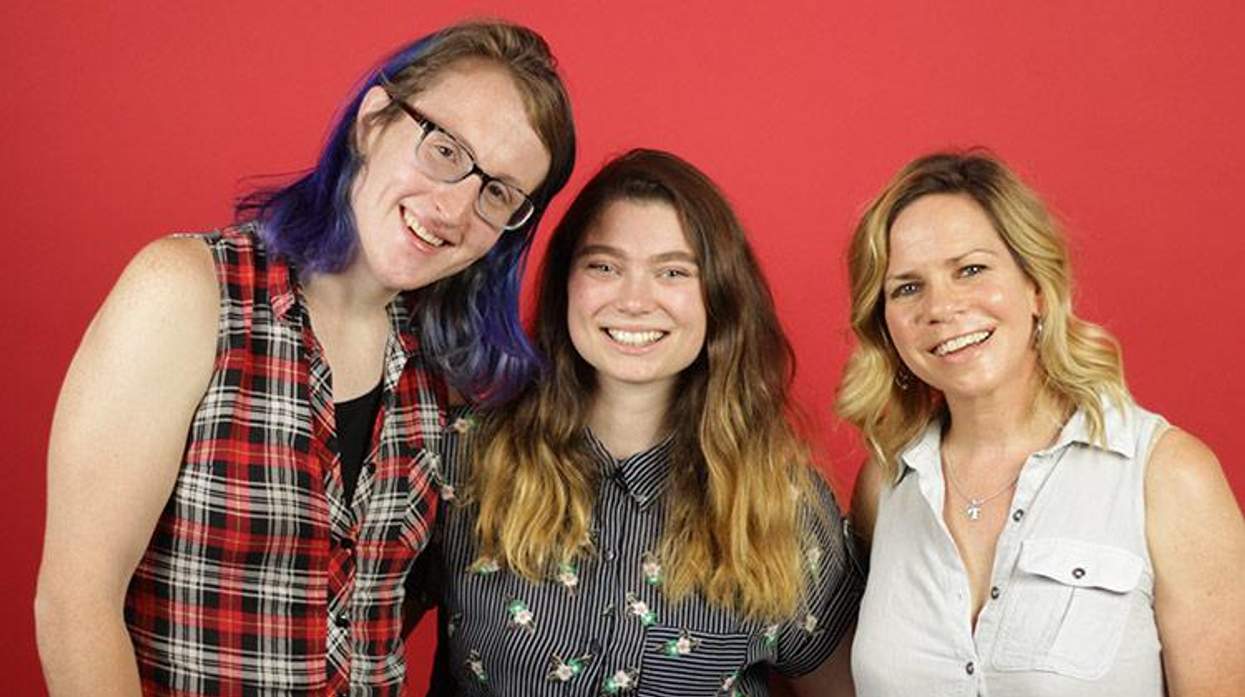
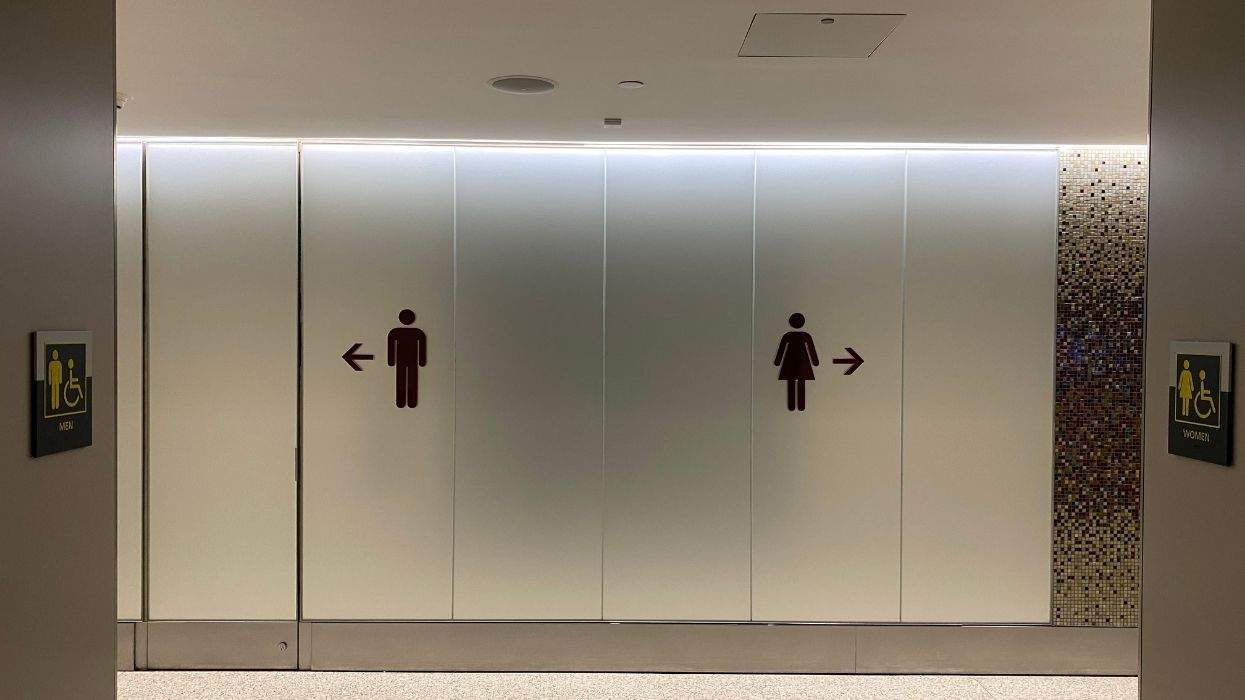
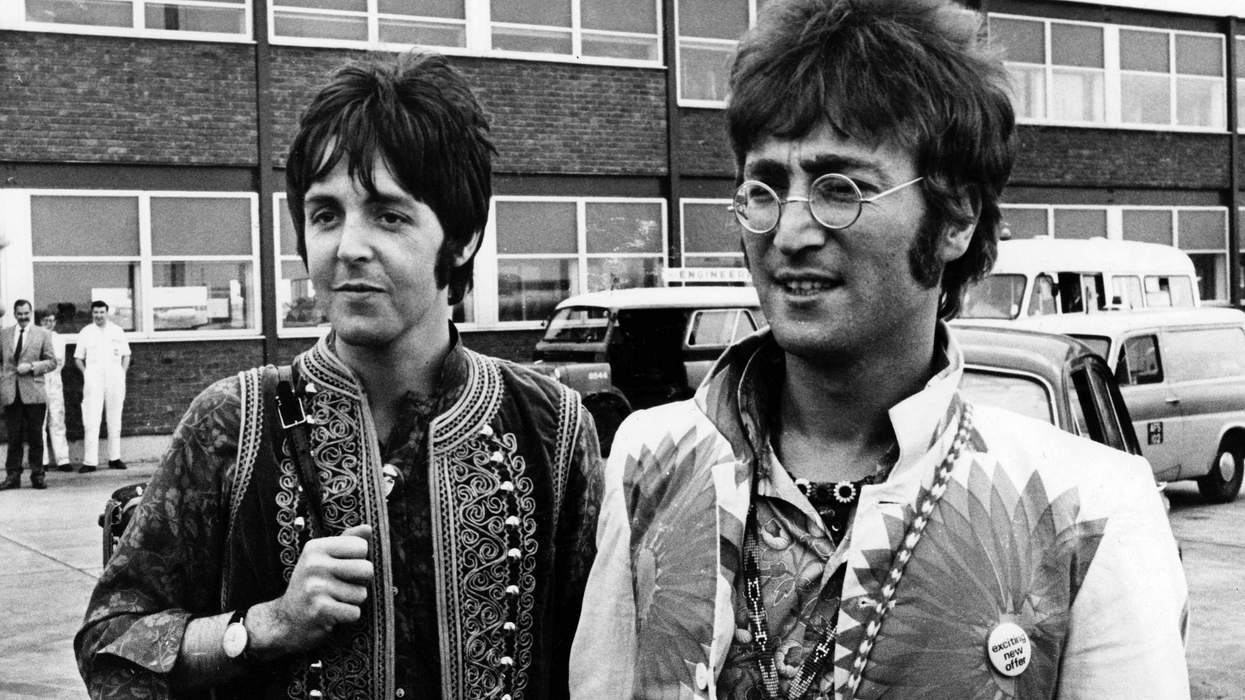
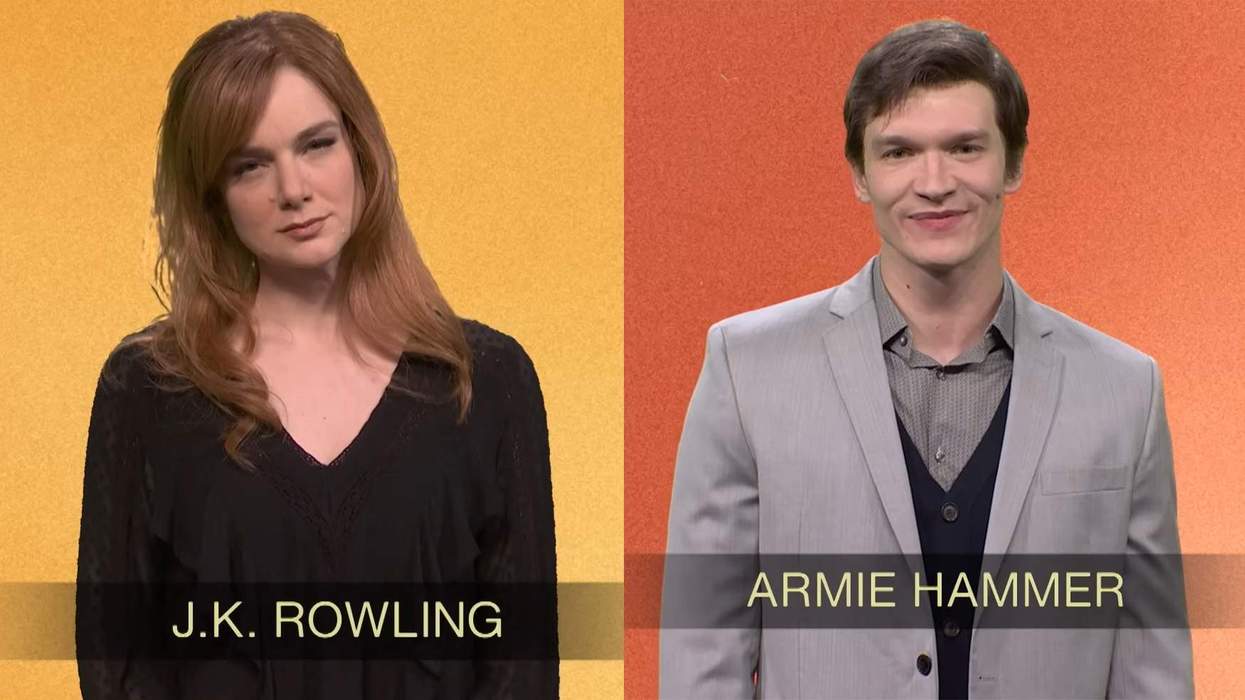
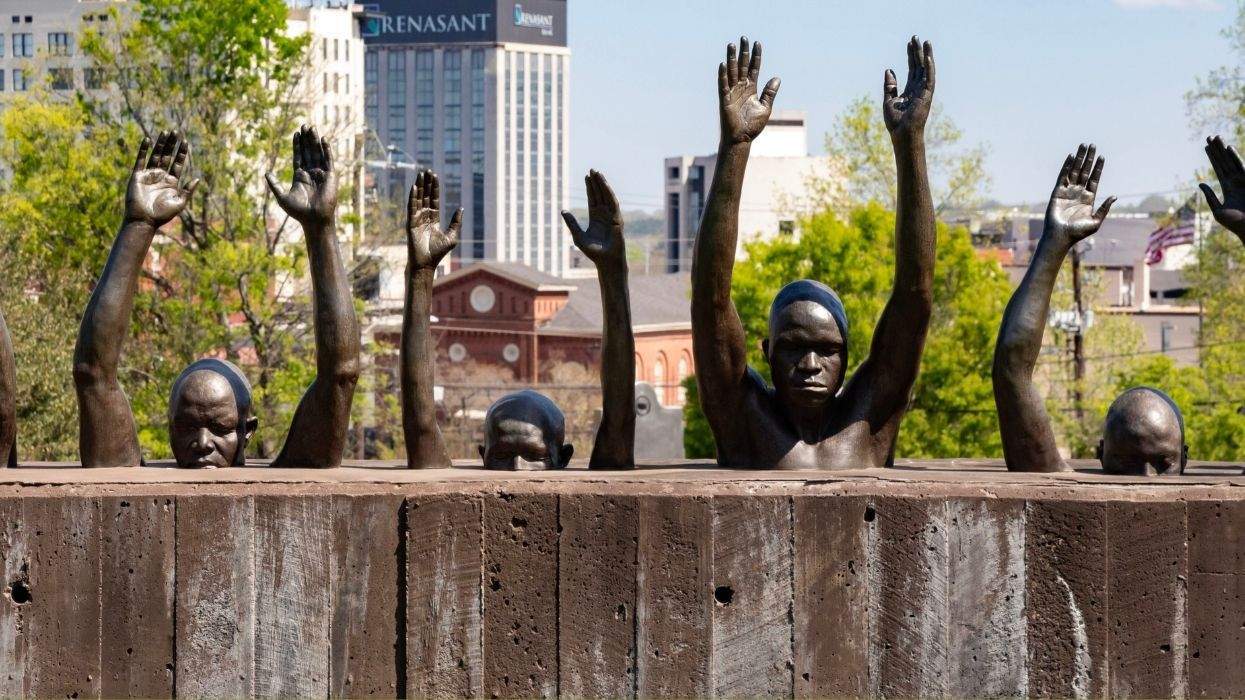
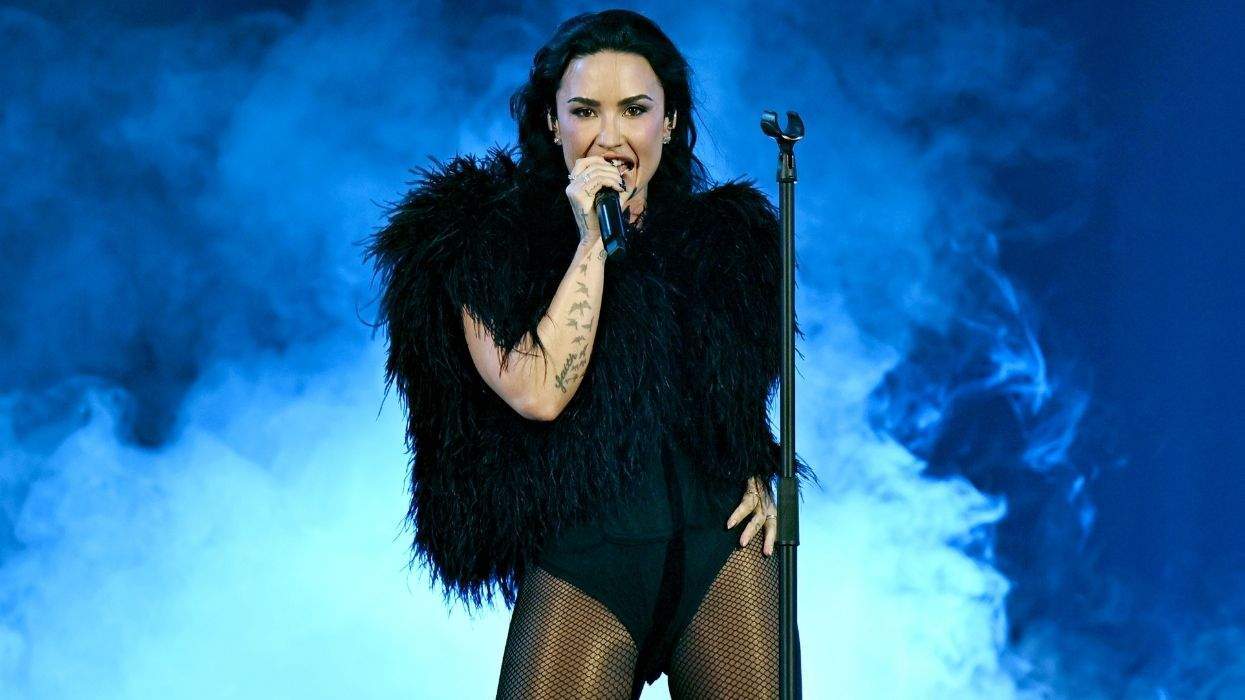
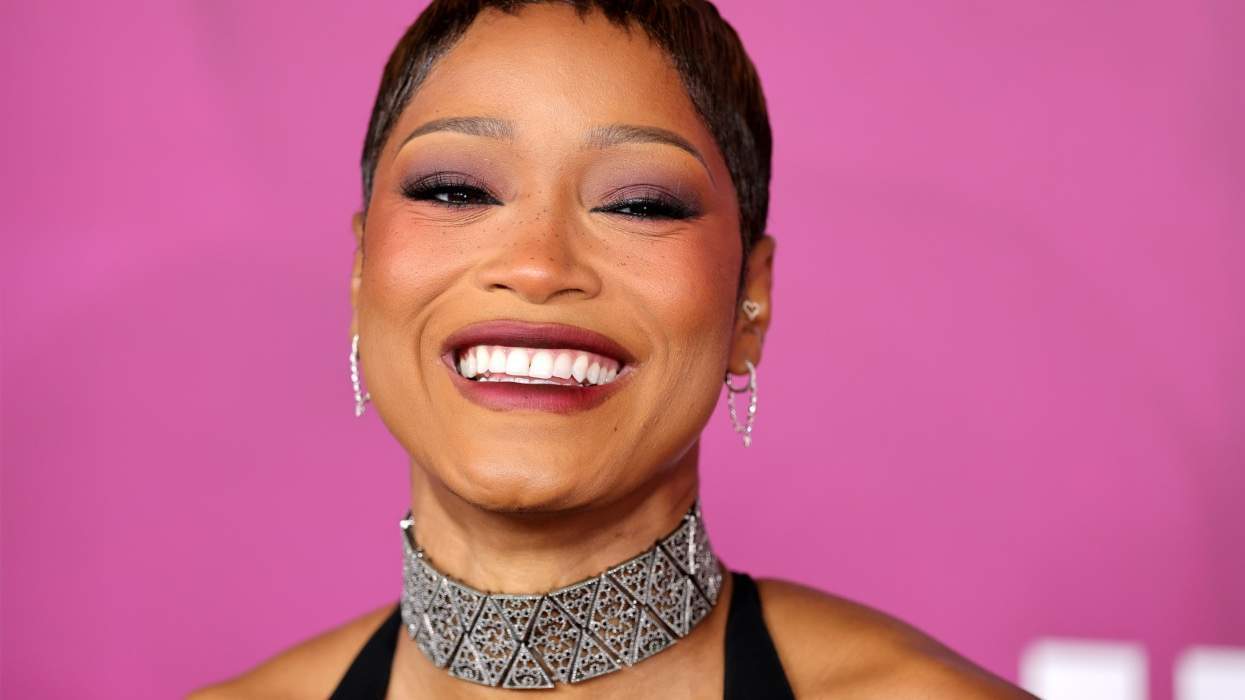








Charlie Kirk DID say stoning gay people was the 'perfect law' — and these other heinous quotes
These are some of his worst comments about LGBTQ+ people made by Charlie Kirk.